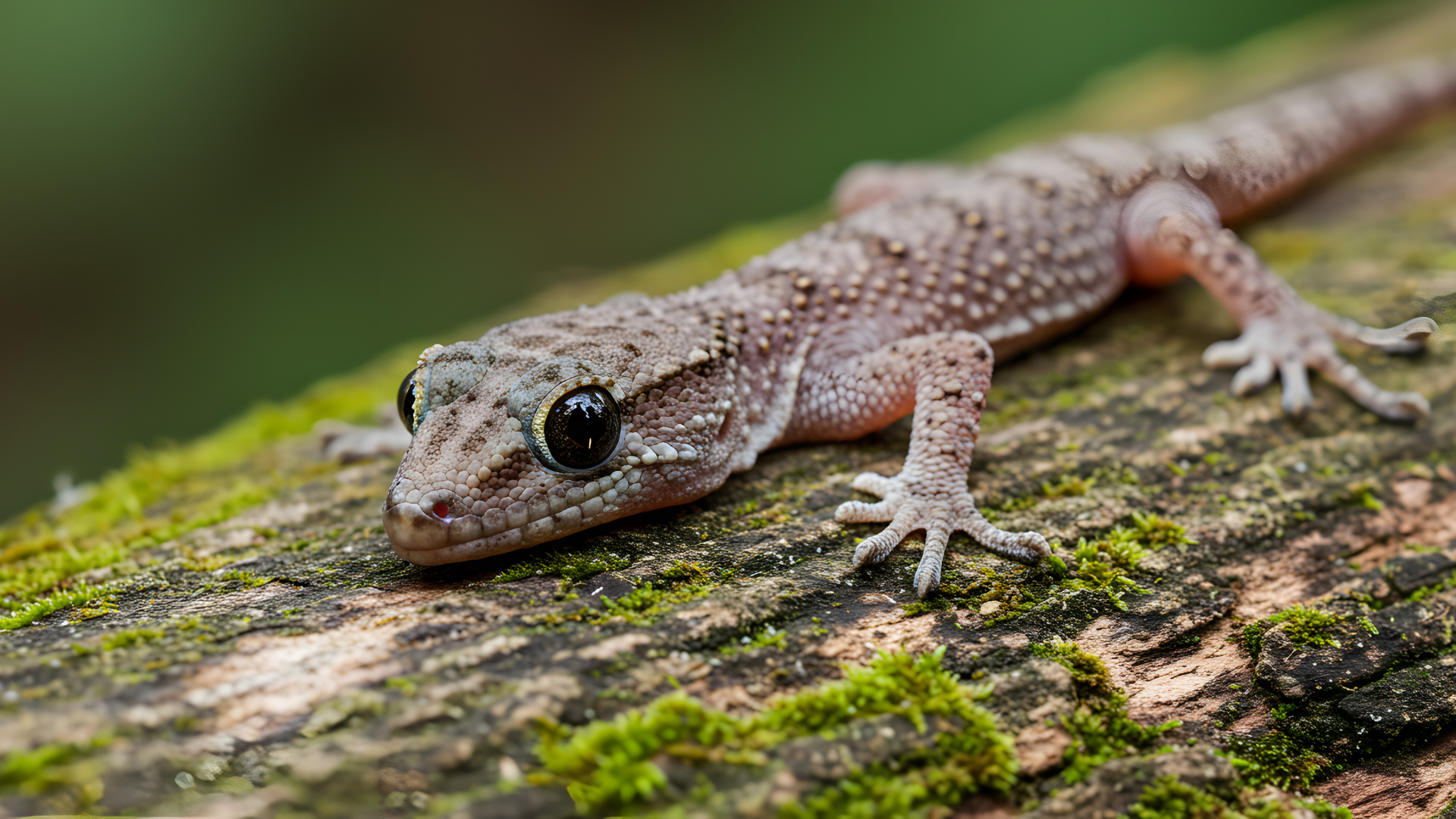Caring for your Mourning Gecko
Mourning Gecko
Lepidodactylus lugubris
Basic Information:
Mourning Geckos are small, parthenogenetic geckos native to coastal regions of Southeast Asia, including parts of Hawaii and the Pacific Islands. Being parthenogenetic means that these geckos are all female and reproduce by cloning themselves without the need for a male. They are arboreal and nocturnal, being most active at night. Mourning Geckos grow to about 3.5-4 inches in length and are known for their ability to thrive in a wide range of environments.
Lifespan:
5-10 years in captivity.
Sexing:
These geckos are parthenogenetic, meaning they are all female and reproduce by cloning. There is no need to determine sex, as males are extremely rare.
Enclosure:
Juveniles: 5-gallon vertical enclosure (12"x12"x18" minimum).
Adults: 10-20 gallon vertical enclosure (18"x18"x24").
Substrate:
A loose, humidity-retaining substrate mix of coconut fiber and orchid bark works best, simulating the natural forest environment. This substrate helps maintain humidity, which is crucial for these geckos.
Lighting & Temperature:
Basking Area: Not needed
Ambient Temperature: 78-80°F.
Cool Side: 70-75°F.
UVB Lighting: A 5.0 UVB bulb is recommended.
*Important: High temperatures (above 85°F) can cause significant stress and overheating.
Humidity:
Mourning Geckos require relatively high humidity levels between 60-80%. Mist the enclosure daily to maintain proper humidity levels and ensure the geckos can drink from the droplets on surfaces.
Food:
These geckos are omnivores. Offer a diet of commercial powdered gecko food mixed with water, supplemented with fruit puree and live insects like fruit flies and small crickets. Ensure that insects are gut-loaded and dusted with calcium and vitamins.
Water:
Mourning Geckos will primarily drink from water droplets on leaves or other surfaces after misting.
Supplementation:
Calcium with D3: Dust food 2-3 times weekly.
Calcium without D3: Use on alternating days if adequate UVB lighting is provided.
Multivitamins: Offer once weekly to support overall health.
With proper care, Mourning Geckos can thrive in captivity and offer a unique and rewarding pet experience. Their fascinating reproductive behavior and social nature make them a joy to observe, whether housed individually or in a group. These resilient and adaptive geckos are ideal for both novice and experienced keepers, showcasing the incredible diversity of the reptile world.


